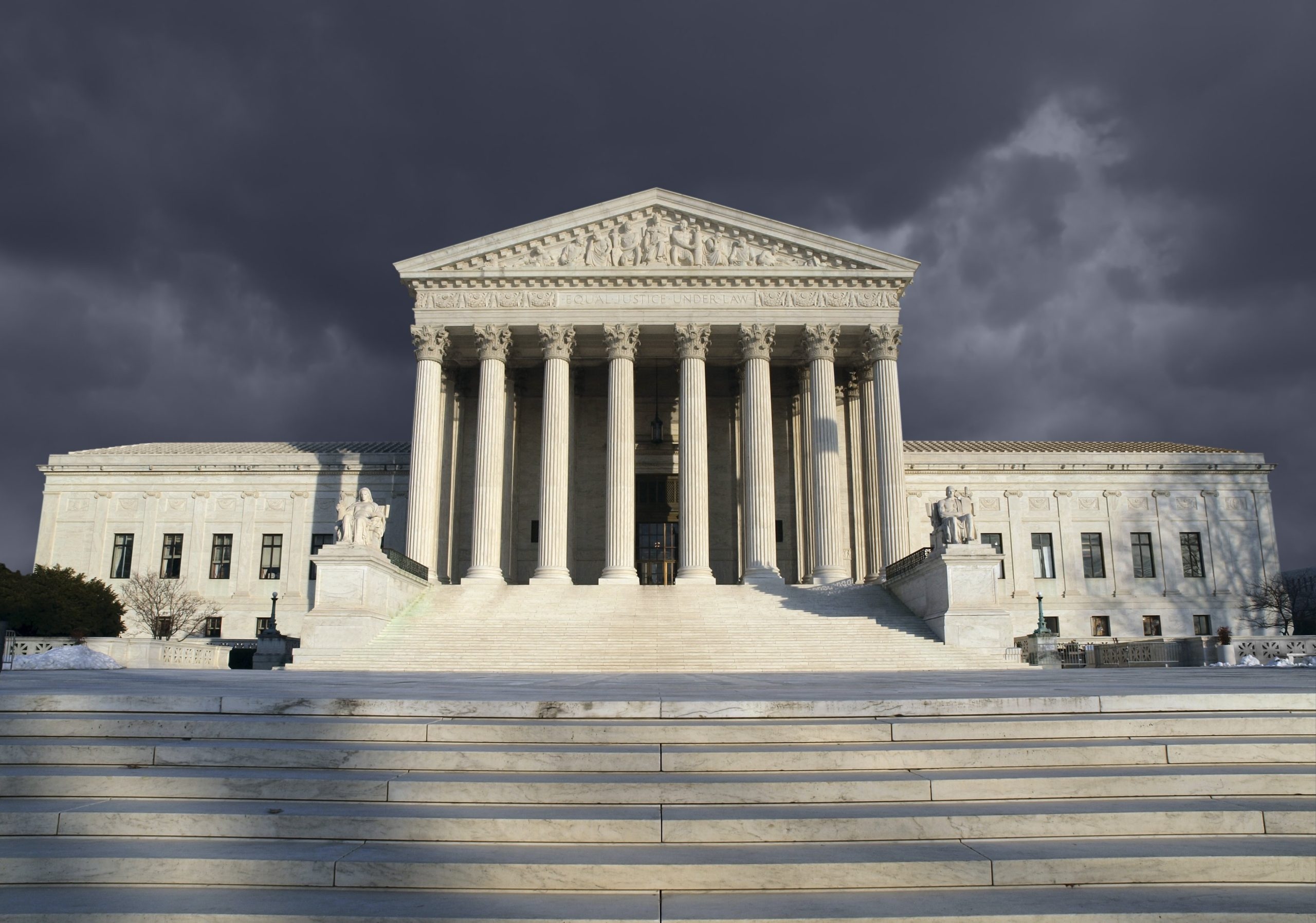Supreme Court rejects Trump’s request to block $2 Billion Foreign Aid Payment
EMERGENCY DOCKET
A divided Supreme Court on Wednesday rejected a request by the Trump administration to lift an order by a federal judge in Washington, D.C. that had directed the State Department and U.S. Agency for International Development to pay nearly $2 billion in foreign-aid reimbursements for work already done. (Trekandshoot via Shutterstock)
A divided Supreme Court on Wednesday turned down a request by the Trump administration to lift an order by a federal judge in Washington, D.C., that had directed the State Department and the U.S. Agency for International Development to pay nearly $2 billion in foreign-aid reimbursements for work that has already been done.
In a brief unsigned opinion, the court noted that the Feb. 26 deadline for the government to make the payments had already passed. It instructed U.S. District Judge Amir Ali to “clarify what obligations the Government must fulfill to ensure compliance” with the temporary restraining order that Ali has entered in the case, paying attention to how feasible it is for the government to comply with those timelines.
Ali is expected to hold a hearing on the aid groups’ motion for a preliminary injunction – which, if granted, would suspend the freeze on foreign-assistance funding going forward – on Thursday, March 6. Justice Samuel Alito, in a dissenting opinion joined by Justices Clarence Thomas, Neil Gorsuch, and Brett Kavanaugh, described himself as “stunned” by the ruling. He called it “a most unfortunate misstep that rewards an act of judicial hubris and imposes a $2 billion penalty on American taxpayers.” Justice Samuel Alito, in a dissenting opinion joined by Justices Clarence Thomas, Neil Gorsuch, and Brett Kavanaugh, described himself as “stunned” by the ruling, calling it “a most unfortunate misstep that rewards an act of judicial hubris and imposes a $2 billion penalty on American taxpayers.”
The brief unsigned order came six days after Chief Justice John Roberts temporarily paused Ali’s Feb. 25 order, which had ordered the agencies to pay contractors and grant recipients by 11:59 p.m. on Feb. 26 for work that had already been done before he issued a Feb. 13 temporary restraining order that prohibited the State Department and USAID from suspending foreign-aid payments.
In an executive order last month, President Donald Trump ordered a halt to the distribution of foreign-aid funds so that federal agencies can ensure that those funds are only disbursed in ways that are “fully aligned with” Trump’s foreign policy. Following that order, Secretary of State Marco Rubio ordered a freeze on all foreign-aid programs funded by the State Department and the USAID.
Several groups that receive or have members that receive foreign-aid funds challenged the pause in federal court in Washington, D.C. They argued that the funding freeze violated both the federal law governing administrative agencies and the Constitution.
Acting Solicitor General Sarah Harris came to the Supreme Court on Wednesday night, asking the justices to quickly put Ali’s Feb. 25 order on hold before the deadline for the State Department and USAID to make the payments and then ultimately to lift it. She argued Ali’s orders violated the executive branch’s authority to make decisions regarding foreign aid. And, although she agreed with Ali that the government was “committed to paying legitimate claims” for work that had been properly completed, the government could not pay “arbitrary determined demands” on an arbitrary schedule of Ali’s choosing. Foreign-aid recipients urged the Supreme Court on Friday to lift Roberts’s order. In a 21 page brief, the foreign-aid recipients told the justices their work “improves and, in many cases literally saves” the lives of millions around the world. The foreign-aid recipients pointed out that the government had not even asked the Supreme Court for a lifting of the TRO. It has instead asked the justices for the lifting of Ali’s February 25 order directing that the government comply with the TRO, and pay for the work already completed – which is even less appealing than a TRO. In a one-paragraph order on Wednesday, the court emphasized that Harris’s request to lift the February 25 order “does not challenge the Government’s obligation to follow” the Feb. 13 temporary restraining orders.
In a one-paragraph order on Wednesday, the court emphasized that Harris’s request to lift the Feb. 25 order “does not challenge the Government’s obligation to follow” the Feb. 13 temporary restraining order.
Alito’s dissent acknowledged Ali’s “frustration with the Government,” and that the aid groups had broached “serious concerns about nonpayment for completed work.” But the court’s denial of the Trump administration’s request to lift Ali’s Feb. 25 order, he contended, “is, quite simply, too extreme a response. He suggested that a federal court has many tools available to address a party’s alleged nonfeasance. This article was originally published on Howe on Court.






